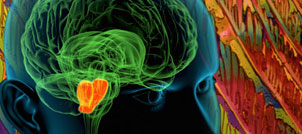The modern Psychological hypnosis was first developed in 1843 by the Scotish Physician James Braid. However it has its origin in an earlier forms of trance healing called “Mesmerism”. When the medical science has advanced tremendously during the last few years,
The origins of hypnosis go back many millenia; indeed ancient cultures and civilisations knew of hypnosis and it as a therapeutic divice. Documents from the ancient Egyptians, Ggreeks, Romans, Indians, Chineses, Persians and Sumerian show extensive studies in hypnosis and prapsycology. Hipnosis was considered as cure for many physical and emotional ailments and disorders.
Between the 9th and 14th, and from the 15th and 16th centuries onwards physicians from many nations developed and refind the concept of hypnosis and its uses. The 18th century when Western explorers got in contact with the practice of hypnotism in the Middle East and the Far East. In the 18th Century the most influential figure in the development of hypnosis was Dr Frantz Anton Mesmer, an Austrian Physician who was a charismatic and at times controversial personality. He used magnets and metal frames to perform 'passes' over the patient to remove "blockages" in the magnetic forces in the body. However his name survived the pasing of time and was immortalised in our vocabularyby the verb"mesmerise". After Mesmers' death in 1815 one of his disciples, Armand de Puysegur, carried on his work and took it one step further.
In 1891,the British Medical Association drafted a resolution in favour of the use of hypnosis in medicine but it was not approved until 1955, 64 years later! Another precursor of modern hypnosis and self development was Dr. Emile Coue who, at the end of the 19th century. Around the same period Sigmund Freud, the father of psycho-analysis, used hypnosis in his early work but soon became disillusioned by the concept. it is believed he did not yqve the patience necessary for hypnosis and was not a good hypnotist.
After World war 1, hypnosis and its therapeutic uses experienced a revival when psychiatrists realized that soldiers suffering traumas of psycological rather than physical origin, were responding well to hypnosis and were rapidly cured. M.H.EriksonMD(1901-1980) a remarkable man, and a highly effective psychotherapist who made intensive use of hypnosis in his work. His hypnotic methods, nowadays called Ericksonian hypnosis, have, without a doubt, added another dimension to modern hypnotherapy. William J bryan Jr. was the first full time US medical practioner of hypnosis and created the American Institute of Hypnosis.
More importanly, perhaps hypnosis became increasinly practical and regarded as useful tool for easing psychological distruss and bringing about profound change in a variety of situations.
The medical system often fail to restore full health in many cases. In these circumstances a holistic health approach has to take Body, Mind relations. Bear in mind that every disease has a mental, emotional and a physical components, and the success of treatment often depends on the emotional, mental and spiritual perception of the patient. To achieve holistic health , Hypnotherapy is a treatment which uses the power of mind to bring the desired changes at the physical, psychological and emotional levels so as to achieve holistic health.
Hypnotherapy is completely safe and harmless. It is a state of altered awareness, not sleep or unconsciousness. Patient is in control of his body and mind during hypnosis. With these methods, any person can be guided into any altered state of conscious awareness, in which psychological and physical changes beyond normal. Conscious capability may be achieved, the hidden secrets of unexplained fears, negative experiences and depressive feelings which can be traced through past life regressive therapy. Past life lived in another time, another place and another body even centuries ago. Going to that life and experience can bring a permanent relief from the problems. During Hypnotic session the patient may automatically step back into a past life experience .
Hypnosis became, and remains to this day, an alternative therapy that is used in medicine, although recent studies suggest that within the next 5-10 yers hypnotherapy could become as routine as visiting a Doctors or Dentists. The future of hypnosis will be to fully realise the encredible potential of our natural hypnotic abilities.


























